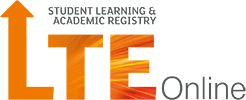Earlier this month Dr. Sam Elkington (Principal Lecturer, Learning and Teaching Enhancement) delivered a webinar as part of Monash University’s global Transforming Assessment series entitled: ‘Making the Case for Mindful Assessment’. An overview of the work and a link to the webinar itself are outlined here.
There is no doubt that many students and staff would prefer university assessment to be different to what they currently experience. However, if we take the position, as I do here (as have more eminent colleagues before me), that assessment needs to be seen as an indispensable aspect of a lifewide attitude to learning, the question is then what kind of learning should be assumed in and through our teaching and assessments?
We might answer that students need to be able to plan, set goals, establish priorities, as well as move back and forth among often disparate tasks. Students need to be able to think about the meaning of new information and connect it to what they already know. They will need to retain meaningful information and be able to access it during tasks, often long after the initial act of learning has taken place. Students need to be able to explore interconnections between and extend their grasp of the verbal and visual dimensions of their learning. Furthermore, they will need to find meaning in these interconnections, cultivating and articulating new insights.
Learning, when conceived in this way, is inherently complex, dynamic, multi-faceted, and influenced to a large extent by the context in which it takes place. And yet, our collective attention when it comes to teaching and assessment tends to be on educational effectiveness and efficiency rather than on the extent to which our approaches and strategies of choice support diverse and sustainable ways of knowing that honour and empower learner experience and development, as well as minimise the negative consequences of stress and anxiety for our students.
In this webinar Sam Elkington draws on the principles of mindful learning and current thinking and evidence in promoting self-regulatory practices to reframe learner-centred assessment as a primary vehicle for authentically personalised learning. Such ‘mindful assessment’, as it is conceptualised it here, necessarily embraces a more encompassing and flexible view of student learning development; one that attends to a number of affective self-regulatory elements that ought to be considered at the point of design – namely these include: student sensitivity to context and new perspectives, intentionality of attention, managing personal responses to feedback, and resilience. Finally, Sam poses some working questions in an attempt shift and advance our collective attention on to the practical implications of mindful assessment design in higher education.
You can access a recording of the webinar here.
